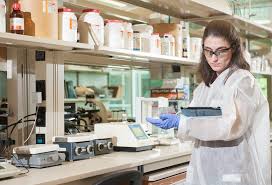Stories you may like
Sanitary Inspector Job Description
Sanitary Inspector Responsibilities & Duties
- Conduct regular inspections of public and private establishments to ensure compliance with sanitation regulations
- Investigate complaints related to unsanitary conditions and take appropriate action
- Collect and analyze samples of water, food, and other materials for contamination
- Prepare detailed reports on inspection findings and recommend corrective actions
- Educate the public and business owners on best practices for maintaining cleanliness and hygiene
- Enforce local, state, and federal sanitation codes and regulations
- Participate in public health campaigns to raise awareness about sanitation issues
- Collaborate with other public health officials to control outbreaks of infectious diseases
- Issue fines and citations to violators of sanitation laws
- Monitor waste disposal systems and sewerage facilities to ensure they meet health standards
Sanitary Inspector Qualifications & Skills
- Bachelor's degree in public health, environmental science, or a related field
- Experience in conducting health and sanitation inspections
- Certification from a recognized public health or sanitation authority
- Strong analytical and problem-solving skills
- Excellent communication and interpersonal skills
- Proficiency in using inspection and sampling equipment
- Knowledge of local, state, and federal sanitation regulations
- Ability to work independently and as part of a team
- Strong attention to detail
- High school diploma or equivalent
- Completion of an accredited sanitary inspector training program
- Knowledge of public health principles and sanitation practices
- Physical ability to conduct inspections in various environments
- Basic computer skills for report writing and data entry
- Valid driver's license and reliable transportation
- Ability to handle and manage confidential information
- Strong observational skills
- Commitment to continuous education and training in public health and sanitation
Public health inspector job duties
Public health inspectors spend much of their workdays traveling to businesses or facilities to conduct inspections. When they're inspecting a business or area, they may wear protective equipment such as respirators or helmets to ensure their safety. While their job duties may vary, typical responsibilities include:
- Physically inspect a business or organization to identify potential health, safety or sanitation violations
- Evaluate equipment, kitchen, storage spaces and other areas to determine sanitation and sterilization techniques
- Issue fines or suspend business licenses based on results of inspections
- Return for a second inspection if necessary to determine the quality of improvements
- Take samples, such as pool water samples, and send to laboratories for testing
- Research health and safety laws and regulations to stay updated in their field
- Create and implement plans to educate the public about health and safety
How to become a public health inspector
Here are the steps you can take to become a public health inspector:
1. Earn a degree
Most employers require public health inspectors to have an associate degree at a minimum. A bachelor's degree may help expand your eligibility for jobs in this field. Typically, public health inspectors have an associate or bachelor's degree in health, natural sciences or a related area. While earning your degree, take courses in areas including physics, health sciences, chemistry, biology and geology. These classes can help prepare you for a career in public health.
2. Complete an internship
While you're working toward your degree, complete an internship to gain experience in the public health field. You can often find internships with public agencies such as local or state health departments. Internships can help you gain further knowledge of health and safety requirements in a professional environment. Some internships may allow you to observe public health inspectors to see how they conduct inspections, communicate with business owners and enforce regulations.
3. Meet employment requirements
After you graduate with a degree, make sure you meet the requirements for employment as a public health inspector. Some states, jurisdictions or employers may require you to pass an employment exam or certification program. It's helpful to review job postings or contact your county or state health department to determine employment requirements in your area. In addition, make sure you get or update your driver's license since most employers are likely to require you to drive to different businesses or locations for inspections.
4. Become certified
While not required in all states or jurisdictions, certification can help you demonstrate your knowledge of public health and safety standards. It can also help you learn new skills so you can advance in your career. Research and compare certification programs to help you find one that aligns with your career goals. The National Environmental Health Association (NEHA) offers various certification programs and continuing education courses recognized by many employers. These NEHA certifications include:
- Food safety auditor: This program teaches you how to plan and conduct food safety audits, verify food safety and conduct post-audit activities. It demonstrates that you can evaluate the effectiveness of food safety programs as an internal or external inspector.
- Registered environmental health specialist/registered sanitarian (REHS/RS): This highly recognized credential requires you to pass a 225-question exam testing your knowledge of environmental health surveillance, inspections and compliance review. This certification shows that you have expertise on a range of environmental health issues.
- Certified professional-food safety (CP-FS): Public health inspectors who perform regulatory inspections in a retail food environment can earn the CP-FS designation if they have a bachelor's degree or equivalent experience. The designation shows you can evaluate food safety programs and implement sanitation standards for safety.





User's Comments
No comments there.